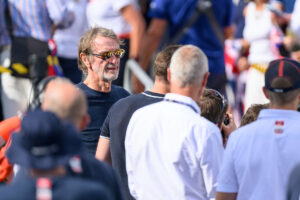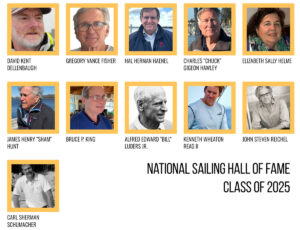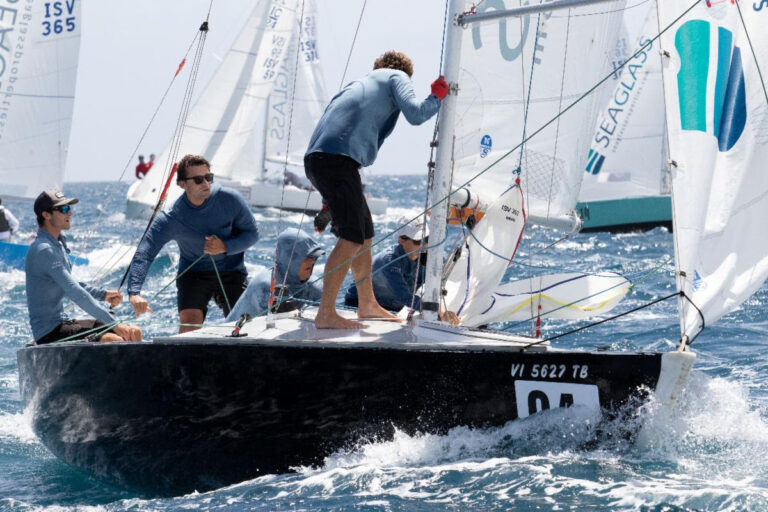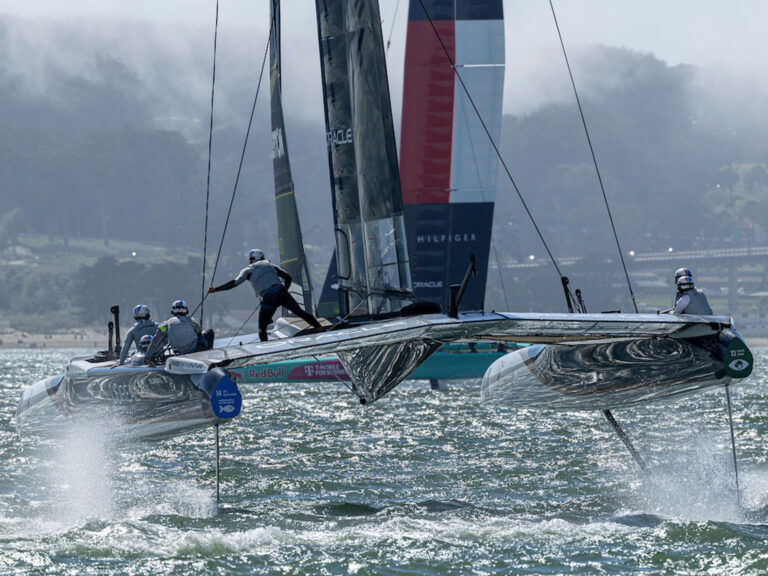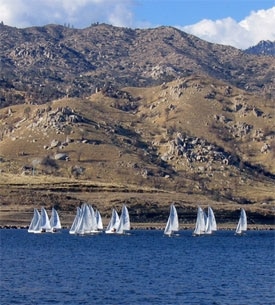
BHall1117
The North-South regatta, hosted by UC Santa Barbara at Isabella Reservoir, wrapped up the fall 2004 season for West Coast colleges with a weekend of close racing and chilly camping. The University of Southern California was ranked No. 1 in the country going into the regatta, however the University of Hawaii won the event closely followed by Stanford in second, USC in third, and UC Irvine in forth. This regatta serves as a de facto West Coast Championship, giving schools an idea of where they stand in the pecking order at the end of the fall season. It also decides the scheduling ranking for the Pacific Coast schools. Although the breeze was, at times, reluctant to fill, the venue was great. Isolated in southern Sierra Nevada Mountains northeast of Bakersfield, Calif., there was plenty of room for 17 varsity teams and numerous JV teams to set up their tents and park their RVs. Unlike regattas in the rest of the country, where the host school normally provides the boats, teams on the West Coast must bring their own CJs and Lasers for this four-division event. Saturday’s racing got off to a slow start, a patchy breeze from the north preventing any races from being sailed. However, after 1 p.m., the steadier thermal breeze from the south filled in on the race course at between 5 to 15 knots, allowing for the race committee to get off four races before sunset. Races on Saturday were followed by socializing around the campfires later that night. Since there was no one for participants to bother, the campfires went on until there was nothing left to burn. A stable breeze from the north at 3 to 8 knots greeted the sailors on Sunday morning and three races were completed before it shut off. Unfortunately, as USC senior Harrison Turner said, “the dominant thermal breeze did not come until the late afternoon.” This was the case both days, which severely limited the amount of races the race committee was able to complete successfully. With only seven races sailed, each point counted, making racing extremely tight. In A division, Georgetown junior Andrew Campbell and sophomore Caroline LaMotte were able beat USC junior Mikee Anderson and sophomore Vanessa Decollibus for first. Winning B division with a string of firsts, broken only by a fourth and second, was Hawaii junior Scott DeCurits and freshman Becky Mabardy. They were the low-point team of the regatta with only 11 points in seven races. Both Laser divisions, C and D, were won by the University of Washington. Junior Brendan Fahey was able to beat out Stanford sophomore Emery Wager by one point to win C division. Fahey said that he “tried to just get a good start and stay on the right side of the shifts.” Winning D division was Fahey’s teammate Zak Malbin, who was also able to get off the line well and post solid finishes. “All of the top teams in the regatta were very close,” said Turner, “and I am sure that this regatta could have been one of the best regattas in recent history if the conditions allowed us to run more races.” With a fifth in A division, a fourth in C and a third in D, in addition to of DeCurtis and Mabardy’s first-place finish with only eleven points in B division, Hawaii was able to take the North-South regatta for the second year in a row. The limited amount of races sailed this weekend emphasized how close the competition was among the top teams. Anything more than a fifth was detrimental to a team and maintaining steady top three finishes was essential for a team to win-at many other intersectionals this would not be the case. USC entered the regatta ranked No. 1 and although they sailed a solid regatta, Hawaii won, giving them top billing among the West Coast teams as college sailing teams turn the corner and look toward the spring season and the North American championships. When asked how his team approached the regatta carrying the No. 1 ranking, Turner said that they “try not to think about the rankings too much and instead focus themselves on the regatta because they know that in the end, the regatta is more important.”



